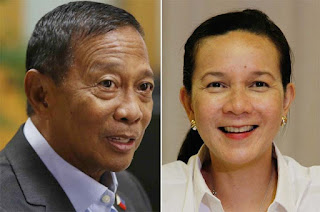I am reposting another good article by a friend, Eric Jurado. Enjoy.
Do you believe in a powerful government?
Do you believe in a powerful government?
One of the most important differences between the Left
and the Right is how each regards the role and the size of the government.
The Left believes that the state should be the most
powerful force in society. Among many other things, the government should be in
control of educating every child; should provide all health care; and should
regulate often to the minutest detail how businesses conduct their business. In
Germany, for instance, the government legislates the time of day stores have to
close. In short, there should ideally be no power that competes with
Government. Not parents, not businesses, not private schools, not religious
institutions—not even the individual human conscience.
Conservatives, on the other hand, believe the
government’s role in society should be limited to absolute necessities such as
national defense and to being the resource of last resort to help citizens who
cannot be helped by family, by community, or by religious and secular
charities.
Conservatives understand that as governments grow in size
and power, the following will inevitably happen:
1. There will be ever-increasing amounts of corruption.
Power and money breed corruption. People in government will sell government
influence for personal and political gain. And people outside government will
seek to buy influence and favors. In Africa, Latin America, and the
Philippines, government corruption has been the single biggest factor holding
nations back from progressing.
2. Individual liberty will decline. With a few
exceptions, such as an unrestricted right to abortion in America, individual
liberty is less important to the Left than to the Right. This is neither an
opinion nor a criticism. It is simple logic. The more control the government
has over people’s lives, the less liberty people have.
3. Countries with ever expanding governments will either
reduce the size of their government or eventually collapse economically. Every
welfare state ultimately becomes a Ponzi Scheme, relying on new payers to pay
previous payers; and when it runs out of the new payers, the scheme collapses.
All the welfare states of the world, including wealthy European countries, are
already experiencing this problem to varying degrees.
4. In order to pay for an ever-expanding government,
taxes are constantly increased. But at a given level of taxation, the society’s
wealth producers will either stop working, work less, hire fewer people, or
move their business out of the country.
5. Big government produces big deficits and ever
increasing—and ultimately unsustainable—debt. This, too, is only logical. The
more money the state hands out, the more money people will demand from the
state. No recipient of free money has ever said, “Thank you. I have enough.”
Unless big governments get smaller, they will all
eventually collapse under their own weight—with terrible consequences socially
as well as economically.
6. The bigger the government, the greater the
opportunities for doing great evil. The twentieth century was the most
murderous century in recorded history. And who did all this killing? Big
governments. Evil individuals without power can do only so much harm. But when
evil individuals take control of a big government, the amount of harm they can
do is essentially unlimited. The Right fears Big Government. The Left fears Big
Business. But Coca-Cola or SM can’t break into your house or confiscate your
wealth—only Big Government can do that. As irresponsible as any Big Business
has ever been at times, it is only Big Government that can build concentration
camps and commit genocide.
7. Big government eats away at the moral character of a
nation. People no longer take care of other people. After all, they know the
government will do that. That’s why citizens of freer countries like America
give far more of their money and volunteer far more of their time to charity
than do Europeans at the same economic level.
Without the belief in an ever-expanding government, there
is no left. Without a belief in limited government, there is no right.
Eric Jurado covers economic and political issues with
liberty as his guiding star.
--------------
See also:
Pol. Ideology 70, Socialism and the politics of envy, April 08, 2017
Pol. Ideology 71, Georgism and the geolibertarians, June 22, 2017
Pol Ideology 72, You love capitalism, January 14, 2018


































